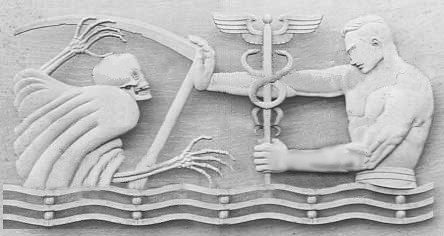New study on humans suggests eating less may delay aging
Well you sure don't need to tell our April Smith at Mprize this news. See her blog here: She's been following a youth extending caloric restriction diet for a while already. Many people have for years simply based on results for other mammals. The Mprize gave one of it's first prizes to a study on mice.
Look it's all good no matter what your goal. Less food means less bulk and more energy. This is because like a light weight race car you need less ummph to push it down the road. So less toxic exhaust in the air, equate that to less junk in your cells helping to age you. So go to it people, eat less, eat right to live better and longer!
Look it's all good no matter what your goal. Less food means less bulk and more energy. This is because like a light weight race car you need less ummph to push it down the road. So less toxic exhaust in the air, equate that to less junk in your cells helping to age you. So go to it people, eat less, eat right to live better and longer!
Study: eating less may delay human agingPlease see the original article here.
Jan. 15, 2006
Courtesy American College of Cardiology and World Science staff
A new study is the first to associate a low-calorie diet with delayed signs of aging in humans, its authors say.
The hearts of people who follow a low-calorie, yet nutritionally balanced, diet resemble those of younger people when examined by sophisticated ultrasound function tests, the study found. They also tend to have more desirable levels of some markers of inflammation and excessive fibrous tissue, it concluded.
The study appears in the Jan. 17 issue of the Journal of the American College of Cardiology.
“Eating less, if it is a high-quality diet, will improve your health, delay aging, and increase your chance of living a long, healthy and happy life,” said Luigi Fontana of the Washington University School of Medicine in St. Louis, Missouri and the Italian National Institute of Health in Rome, Italy.
“This is the first report ever to show that calorie restriction with optimal nutrition may delay primary aging in human beings.”


